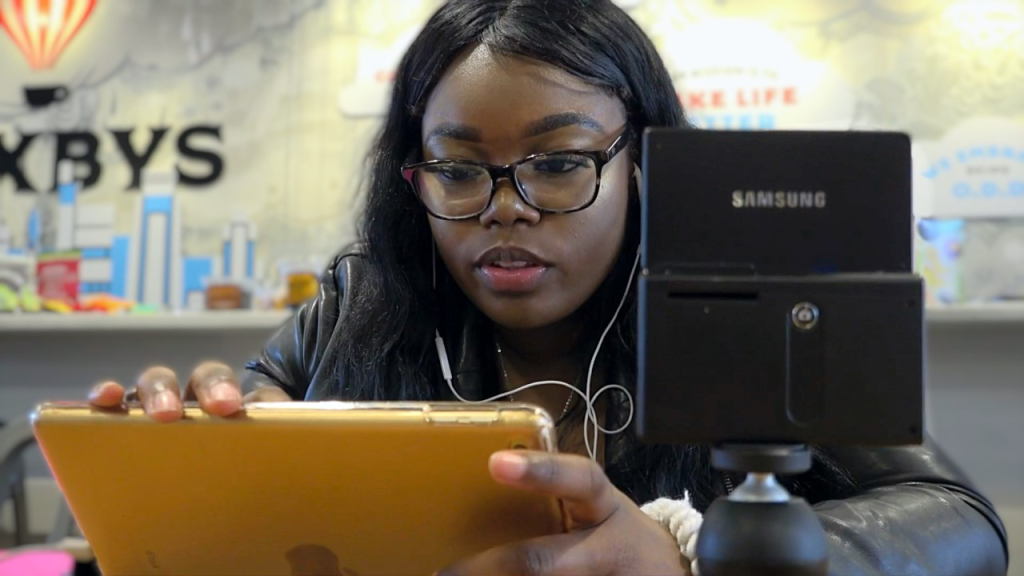Finding purpose may improve teenagers’ well-being

A teenager creates a podcast in GripTape’s “Learning Challenge” program. The 10-week experience allowed adolescents to explore any interest with an adult mentor. Photo by Austin Cofrancesco, courtesy of Kaylin Ratner
Teenagers become happier when they engage in activities that work toward fulfilling their goals, according to a study published in February.
The study partnered with GripTape, a youth organization that aims to help teenagers explore their passions via stipends and adult mentors.
Working with daily surveys from GripTape participants, the study turned their emotional well-being into numerical data.
Kaylin Ratner, an assistant professor at the University of Illinois at Urbana-Champaign, led the study.
Previous studies examined how purpose contributed to people having greater success than their peers, Ratner said.
However, she said, this study looked at every teenager and how purpose impacted their well-being.
“It doesn’t matter where you are relative to your peers,” Ratner said. “As long as you are able to get these tiny boosts from day-to-day, from whatever is normal to you, we should see those correlated upticks in well-being, too.”
The study measured the satisfaction of teens with their lives and the positivity of their emotions, Ratner said.
Consistently, she said, teenagers who reported feeling more purposeful also felt happier.
The study focused on GripTape because of anecdotes from adult and adolescent participants.
“When you (asked the teens), ‘What are the exciting things that you did this week?’” Ratner said. “They would light up telling you how they built a skateboard, or they learned 3D printing, or they did things that were happening outside of school.”
GripTape gives teenagers the opportunity to explore their interests in its nationwide “Learning Challenge,” a 10-week program with a $500 stipend and an adult mentor, Ratner said.
The study focused on investigating the experiences youth had with GripTape, Ratner said.
In the process of collecting data, Ratner said she developed a relationship with GripTape with mutual respect and expertise.
“It's been incredibly rewarding being able to work with a youth program that is just so dedicated to youth outcomes and youth empowerment,” Ratner said.
The results of the study excited Ratner and her team, she said.
“This paper is now showing that it doesn't kind of matter so much where you start, as long as you can just do a little bit better than what's usual for you,” Ratner said. “I just think that that's incredibly uplifting.”

